
Certificate in Quantitative Finance (CQF)
Master cutting-edge skills and advance your career with the world's leading professional qualification in quantitative finance and machine learning

years' shaping quant careers
alumni and current delegates
People in the CQF community
Countries with CQF alumni
The Certificate in Quantitative Finance (CQF) equips you with the advanced mathematical modeling, derivatives pricing, risk management, data science, and machine learning techniques that top financial institutions demand.
Founded by Dr. Paul Wilmott in 2003 to bridge the gap between academia and industry, the master's-level program has been trusted by professionals and organizations worldwide to teach the practical implementation of cutting-edge quant techniques. Delivered online, part-time, over 6 months by leading practitioners, the CQF is the essential designation for professionals looking to start or advance a career in quant finance.
Next Program Start:
25th June 2026
Awarding Body:
The CQF is awarded by the CQF Institute, part of Fitch Learning
Career-Focused Syllabus:
The CQF teaches the practical implementation of the latest quant finance and machine learning techniques used in industry
Practitioner-Led Faculty:
The program is taught by world-renowned quant practitioners working at leading banks and institutions
Global CQF Community:
CQF delegates automatically join our CQF Institute community, comprising almost 40,000 members worldwide
Level of Study:
Master's-level professional qualification
Founded By:
The CQF was founded by Dr. Paul Wilmott in 2003 to bridge the gap between academia and industry
Flexible Delivery:
The CQF is delivered online and part-time over 6 months, with the option to defer for up to 3 years at no extra cost
Unique Study Support:
The core program is complemented with hands-on Python Labs, discussion-based tutorials, one-to-one faculty support, math drop-in clinics, and more
Lifelong Alumni Benefits:
CQF alumni have permanent access to the ever-expanding Lifelong Learning library and CQF Institute membership perks
The CQF program can be divided into three phases - preparation, qualification, and Lifelong Learning. Download a brochure to learn more about each phase.
Your CQF journey will begin with three optional, online primers to refresh your skills before the program starts. These primers are available as soon as you enroll on the program, and focus on:
The CQF qualification comprises of 6 core modules, followed by 2 advanced electives of your choosing. These modules cover:
Module 1 - Building Blocks of Quantitative Finance
In module one, we will introduce you to the rules of applied Itô calculus as a modeling framework. You will build tools using both stochastic calculus and martingale theory and learn how to use simple stochastic differential equations and their associated Fokker- Planck and Kolmogorov equations.
Module 2 - Quantitative Risk & Return
In module two, you will learn about the classical portfolio theory of Markowitz, the capital asset pricing model and recent developments of these theories. We will investigate quantitative risk and return, looking at econometric models such as the ARCH framework and risk management metrics such as VaR and how they are used in the industry.
Module 3 - Equities & Currencies
In module three, we will explore the importance of the Black- Scholes theory as a theoretical and practical pricing model which is built on the principles of delta hedging and no arbitrage. You will learn about the theory and results in the context of equities and currencies using different kinds of mathematics to make you familiar with techniques in current use.
Module 4 - Data Science & Machine Learning l
In module four, you will be introduced to the latest data science and machine learning techniques used in finance. Starting with a comprehensive overview of the topic, you will learn essential mathematical tools followed by a deep dive into the topic of supervised learning, including regression methods, k-nearest neighbors, support vector machines, ensemble methods and many more.
Module 5 - Data Science & Machine Learning ll
In module five, you will learn several more methods used for machine learning in finance. Starting with unsupervised learning, deep learning and neural networks, we will move into natural language processing and reinforcement learning. You will study the theoretical framework, but more importantly, analyze practical case studies exploring how these techniques are used within finance.
Module 6 - Fixed Income & Credit
In the first part of module six, we will review the multitude of interest rate models used within the industry, focusing on the implementation and limitations of each model. In the second part, you will learn about credit and how credit risk models are used in quant finance, including structural, reduced form as well as copula models.
+
2x Advanced Electives
Your advanced electives are the final element in the program. These give you the opportunity to explore an area that’s most relevant to you. You need to select two electives from our extensive list of options: Advanced Ensemble Modeling, Advanced Portfolio Management, Advanced Machine Learning I & II, Advanced Risk Management, Advanced Volatility Modeling, Algorithmic Trading I & II, Behavioral Finance for Quants, Counterparty Credit Risk Modeling, Decentralized Finance Technologies, Energy Trading, FX Trading & Hedging, Generative AI Agents in Finance & Beyond, Generative AI & Large Language Models for Quant Finance, Modeling using C++, Quantum Computing in Finance, Numerical Methods, R for Data Science & Machine Learning, Risk Budgeting: Risk-Based Approaches to Asset Allocation.
Financial markets are always evolving and your skillset needs to adapt with them. That's why the CQF is a career-long partnership, keeping your skills competitive long after you finish the qualification.
As a CQF alumni, you will have permanent access to our ever-expanding Lifelong Learning library, at no additional cost. This unique resource includes extra lectures, masterclasses, and the latest CQF qualification content.
Led by Dr. Paul Wilmott, the CQF faculty comprises leading practitioners such as Dr. Claus Huber, Dr. Jessica James, Dr. Peter Jaeckel, and others. Our faculty leverage their real-world expertise to teach the assumptions, limitations, and practical use cases for each model and method taught on the program.
Dr. Paul Wilmott
Founder, CQF
Paul is a renowned quant expert. His research spans articles in leading journals and acclaimed books. He has extensive consulting experience, and founded a hedge fund and a university course.

Dr. Randeep Gug
CQF Managing Director, Fitch Learning
Prior to Fitch Learning, Randeep spent 5 years in equities at Salomon Smith Barney, traded on the Indian National Stock Exchange (NSE), and is a qualified teacher.
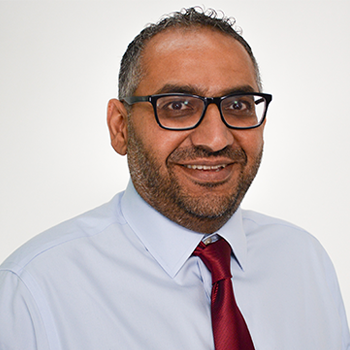
Dr. Riaz Ahmad
Course Director, CQF
Riaz is an applied mathematician specializing in the mathematical and computational aspects of financial derivatives. Riaz has lectured at University College London and Oxford University.
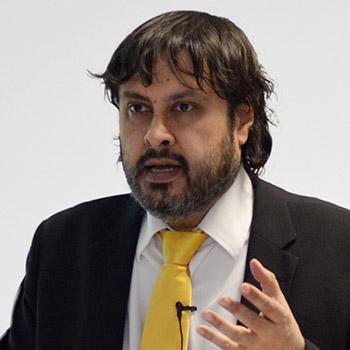
Dr. Miquel Noguer Alonso
Founder, AI Finance Institute
Miquel has 20+ years of experience in asset management. He is the CDO at Global AI and worked at UBS, AndBank, KPMG, and FDP Institute. He has taught at NYU, Columbia, and Imperial College.
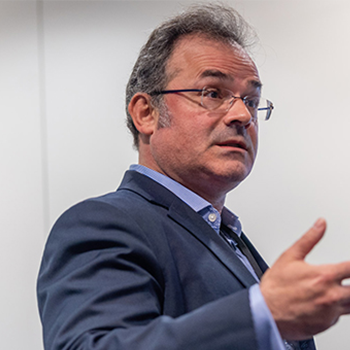
Daniel Bloch
Owner, Quant Finance Ltd
Daniel has managed teams of quant researchers in top banks. He was a portfolio manager on multi-strategies systematic trading. Now, Daniel conducts research on mathematical finance and AI.
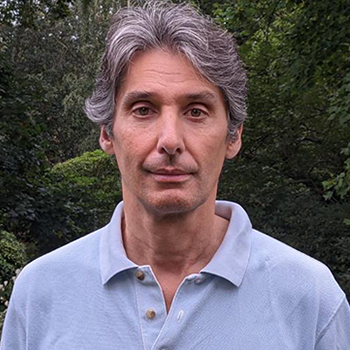
Dr. Richard Vladimir Diamond
Lecturer, CQF
Prior to teaching, Richard was an Associate Principal at a private investment office, setting up their trading operations. He also designed, coded, and executed systematic arbitrage in VIX futures.
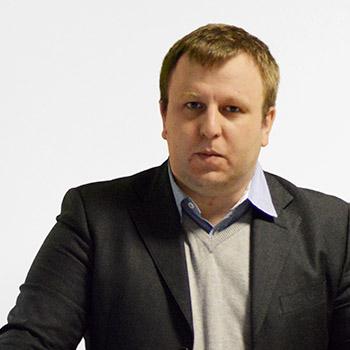
Dr. Jon Gregory
Senior Advisor, Solum Financial Ltd.
Jon has worked on xVA and credit risk with Barclays, BNP, and Citi. He wrote, Counterparty Credit Risk: The New Challenge for Global Financial Markets.
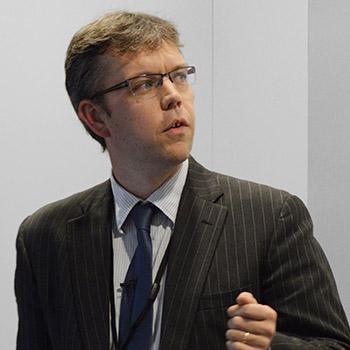
Dr. Marc Henrard
Managing Partner, muRisQ Advisory
Marc has worked in risk, trading, software development, and quant research. He is Head of Quant Research at OpenGamma, has authored books, and more.

Dr. Yves Hilpisch
CEO, The AI Machine
Yves is CEO of The Python Quants and The AI Machine – focused on data science, ML, and AI-powered algo trading. He is the creator of financial analytics library and DX Analytics.
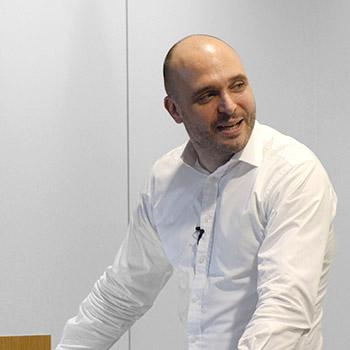
Dr. Claus Huber
Head of Quant Modeling & Analytics, Helvetia Insurance Group
Claus develops tools for strategic and tactical asset allocation, risk, and more. He has experience across funds, banks, and more.
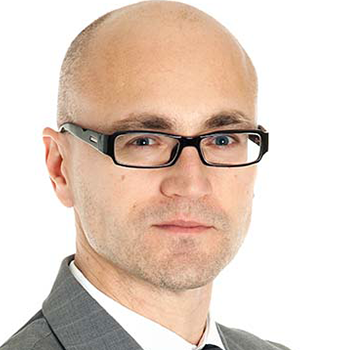
Dr. Peter Jaeckel
Managing Director, OTC Analytics
Peter has worked across quant analysis and modeling for NatWest, RBS, and ABN AMBRO. He is the author of Monte Carlo Methods in Finance and articles on financial math and derivatives.
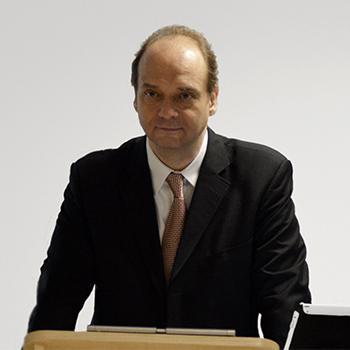
Dr. Jessica James
Managing Director, Commerzbank AG
Jessica has also worked in various roles at Citi. She has authored several publications and is associated with the development of currency as an asset class.
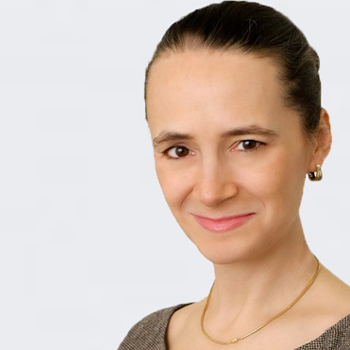
Prof. Sébastien Lleo
Professor, NEOMA Business School
Sébastien has worked for 7 years in investment and risk management. He has co-authored books on risk-sensitive stochastic control and stock market crashes.
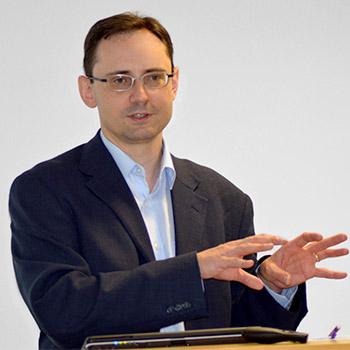
Dr. Panos Parpas
Professor, Imperial College London
Prior to his work at Imperial, Panos was a postdoctoral fellow at MIT. Before that, he was a quantitative associate at Credit-Suisse. He is also a CQF alumnus, having completed the program in 2007.
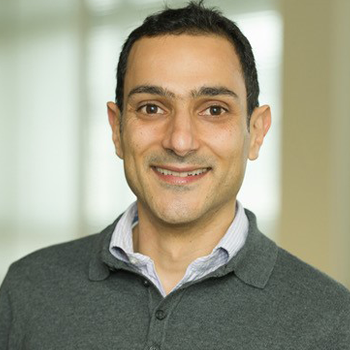
Dr. Alonso Peña
Quantitative Analyst, European Investment Bank
Alonso also taught at the SDA Bocconi School of Management and Cambridge University. He is the author of Advanced Quantitative Finance with C++.
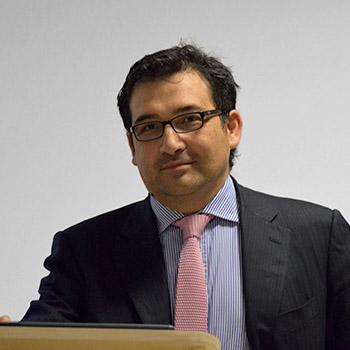
Kannan Singaravelu
Director, Indigo Dreams
Kannan is a Quant Researcher with experience across asset classes. He has headed a commodity derivatives research desk and oversaw a multi-asset structured product business.

Prof. Stephen Taylor
Professor, Lancaster University
Stephen has held a Chair in Finance at Lancaster University since 1993. His work on stochastic volatility and GARCH models is incorporated in the highly cited book, Modelling Financial Time Series.
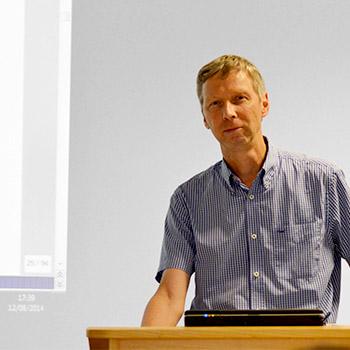
Dr. Si-Yi Zhou
Head of Group Model Validation, Emirates NBD
Si-Yi has worked for various tier one financial institutions. He also developed various valuation and risk models for different asset classes.
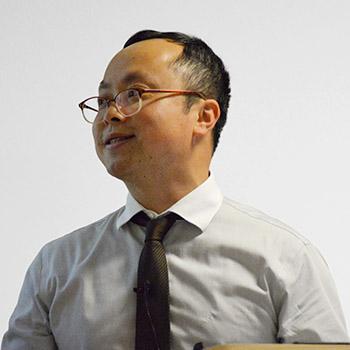
We are dedicated to supporting you on your CQF journey. From the pre-course Primers at the start and through your CQF qualification, our faculty will be on hand to provide help and advice to ensure your success through a range of unique study support.
Benefit from additional guidance with one-to-one faculty support
Delve deeper into topics with faculty in discussion-based tutorials
Practice implementing models with interactive Python Labs
Access extra math support before the program starts in our drop-in clinics
Join faculty for live online workshops to support your final project
Connect with peers and faculty via the CQF Forum
The CQF teaching methodology blends cutting-edge theory and real-world implementation. Our faculty ensure you learn the theory, review your understanding, and practice implementing skills to real industry scenarios.
All our exams are open-book, so you can showcase your new skillset.
Modules 2, 3, and 4 conclude with exams that require you to derive, apply, and interpret financial models. At the end of the program, you will complete a practical final project based upon a real industry scenario. This is your chance to impress current and potential employers with your knowledge gained through the CQF.
You must be 18+ to enroll on the CQF program.
We recommend that you have at least an A-Level or equivalent in mathematics.
Earning the CQF is a significant milestone, but it is not the end of our partnership with you. As a CQF alumni, you will enjoy exclusive benefits to keep you on top of the latest quant techniques throughout your career.
CQF alumni have permanent access to the Lifelong Learning library at no extra cost. This unique resource includes over 900 hours of additional lectures, masterclasses, and the latest CQF qualification content. This means you could do the CQF tomorrow, and in 10 years time, you will still be able to upskill with the new lectures added onto the program.
When you enroll on the CQF program, you become a member of the CQF Institute, the largest, global quant finance membership organization and the awarding body of the program. This membership gives you access to exclusive online events and conferences with industry experts, live networking events, thought leadership, and the CQF Careers Service.
Whether you are looking to advance or start a career in quantitative finance, the CQF will equip you with the practical, industry-relevant skills you need for your quant finance career path. That's why thousands of professionals worldwide have trusted the program to deliver the essential skills they needed to achieve their career goals.

"The knowledge and practical insights gained from the CQF were instrumental in my transition into the front office."

"The CQF has given me valuable insights which have augmented my on-job learning and advanced my career in this industry."

"The biggest value of the CQF was that it helped me transfer to a new role in the risk models team very smoothly."

"I've always been interested in trading, and the CQF was a great way to expose myself whilst developing my math and coding skills."

"I enrolled to fill a knowledge gap and gain practical exposure to quant problems. The depth and breadth of the CQF is astonishing."

"The CQF added value to my career, particularly in the ability to transition from risk to trading. I wouldn’t be where I am without it."